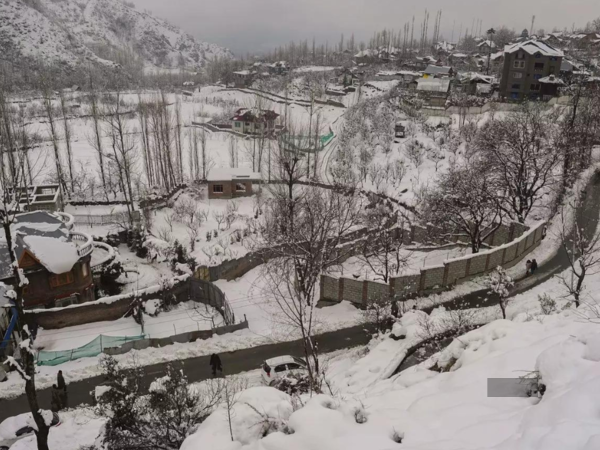Fresh snowfall in Kashmir; Srinagar-Jammu national highway closed, flights affected
Srinagar, Jan 20 (PTI) Most parts of Kashmir received fresh snowfall on Friday leading to the closure of the Srinagar-Jammu national highway and impacting flight operations to and from the Valley, officials said here.

Snowfall was recorded in tourist towns of Pahalgam and Gulmarg, as well as in Anantnag, Kulgam, Shopian, Pulwama, Budgam, and the upper areas of Kupwara, Ganderbal and Srinagar.
Traffic movement on both sides of the Srinagar-Jammu national highway — the all-weather road connecting Kashmir with the rest of the country — was stopped due to snowfall and shooting stones between Ramban and Banihal, officials said.
Moreover, flight operations at the Srinagar airport were affected due to snowfall and low visibility, the officials said.
Minimum temperatures rose in Kashmir but still settled below the freezing point across the Valley. Srinagar recorded a minimum temperature of minus 0.1 degrees Celsius on Thursday night — up from minus 1.4 degrees Celsius the night before. Qazigund, the gateway to the Valley, registered a low of minus 0.6 degrees Celsius.
Kokernag in south Kashmir recorded a low of minus 1.4 degrees Celsius, while the minimum temperature in Kupwara settled at minus 1.5 degrees Celsius. The mercury in Pahalgam, in the Anantnag district, which serves as a base camp for the annual Amarnath Yatra, settled at minus 2.9 degrees Celsius.
The minimum temperature at Gulmarg in Baramulla district was minus 7.6 degrees Celsius.
The meteorological office had forecast wet weather in Jammu and Kashmir from January 19 to 25 due to western disturbances. It said there were chances of light to moderate rain or snow in parts of Jammu and Kashmir on Friday and Saturday.
It predicted a much higher intensity of precipitation from January 23 to 25, with a possibility of moderate snow in the plains of Kashmir, moderate to heavy snow over middle and higher reaches and rains in Jammu.
Kashmir is currently under the grip of ‘Chillai Kalan’, the 40-day harshest weather period when chances of snowfall are maximum and most frequent. Chillai Kalan begins on December 21 and ends on January 30. The cold wave continues even after that with a 20-day-long ‘Chillai Khurd’ and a 10-day-long ‘Chillai Bachha’ following it.




